All content on this site is intended for healthcare professionals only. By acknowledging this message and accessing the information on this website you are confirming that you are a Healthcare Professional. If you are a patient or carer, please visit the Lymphoma Coalition.
The Lymphoma Hub uses cookies on this website. They help us give you the best online experience. By continuing to use our website without changing your cookie settings, you agree to our use of cookies in accordance with our updated Cookie Policy
Introducing

Now you can personalise
your Lymphoma Hub experience!
Bookmark content to read later
Select your specific areas of interest
View content recommended for you
Find out moreThe Lymphoma Hub website uses a third-party service provided by Google that dynamically translates web content. Translations are machine generated, so may not be an exact or complete translation, and the Lymphoma Hub cannot guarantee the accuracy of translated content. The Lymphoma Hub and its employees will not be liable for any direct, indirect, or consequential damages (even if foreseeable) resulting from use of the Google Translate feature. For further support with Google Translate, visit Google Translate Help.
EHA-SWG 2017 | Rare Lymphomas: current and future treatment of MCL
Bookmark this article
On March 10–12 2017, the EHA-SWG meeting on Rare Lymphomas took place in Barcelona, Spain, and was jointly chaired by Prof. Martin Dreyling, from Klinikum der Universität München, Germany, and Prof. Marie José Kersten, from the Academic Medical Center, Amsterdam, The Netherlands.
On March 10th 2017, M. Dreyling gave a talk titled “Current standards and future studies”, during the “Mantle Cell Lymphoma” scientific session.
Prof. Dreyling began by explaining that MCL is characterized by the t(11;14)(q13;q32) translocation, which results in constitutional overexpression of cyclin D1 and dysregulation of the cell cycle in the majority of cases.
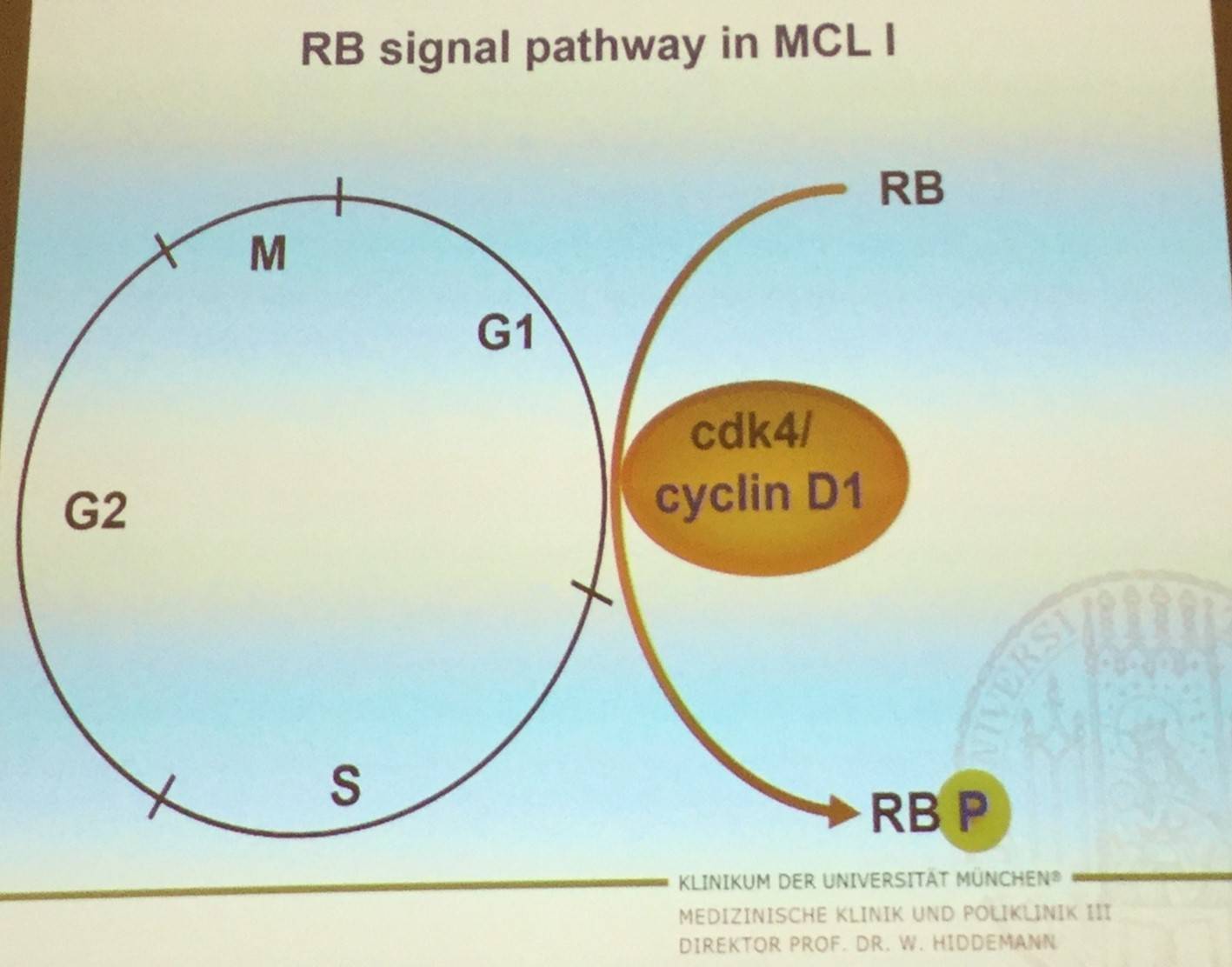
MCL shows a heterogeneous, but mostly aggressive, clinical course. The disease also displays a continuous relapse pattern and has a median survival of approximately 3–5 years. Recently, there have been reports describing an indolent disease course in ~10% of cases which have improved outcome.
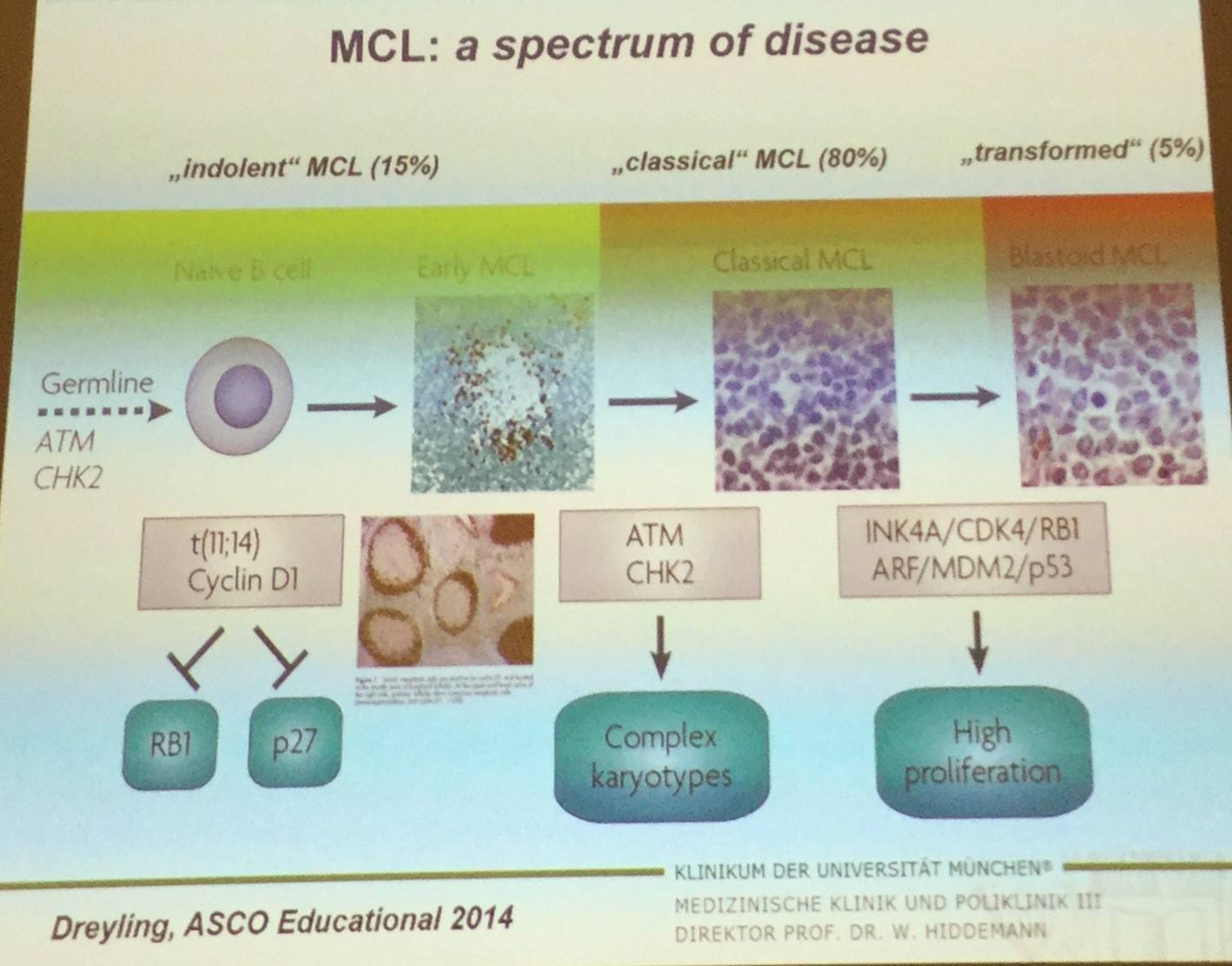
Elderly patients
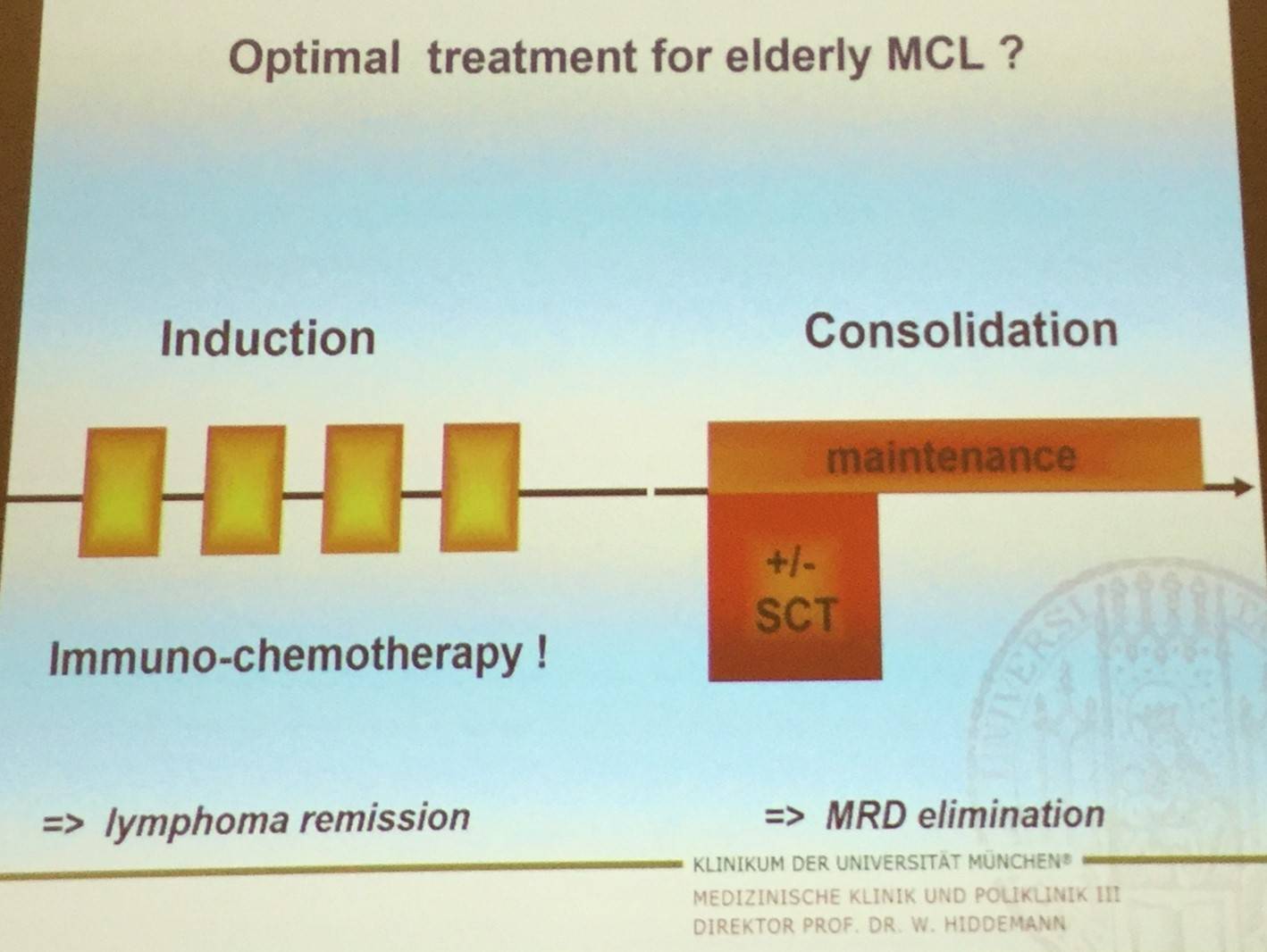
- Bendamustine is the preferred choice of chemotherapy in more indolent cases (based on LDH and Ki-67) because of its favorable toxicity profile
- In highly proliferating cases, regimens containing cytarabine are more appropriate
- Maintenance with rituximab was reported to significantly improve survival after R-CHOP in a large, European, phase III trial
Younger patients
- Significantly improved time to treatment failure reported when younger patients are treated with cytarabine-containing induction followed by myeloablative conditioning and ASCT
- Subsequent maintenance with rituximab improves PFS and OS further
Targeted therapies
- Small inhibitors of BCR pathway: e.g. the BTK inhibitor ibrutinib has favorable toxicity profile and induces long-term remissions; however, aggressive early relapses have been reported
- Lenalidomide has shown superiority to mono-chemotherapy in a randomized, phase III trial
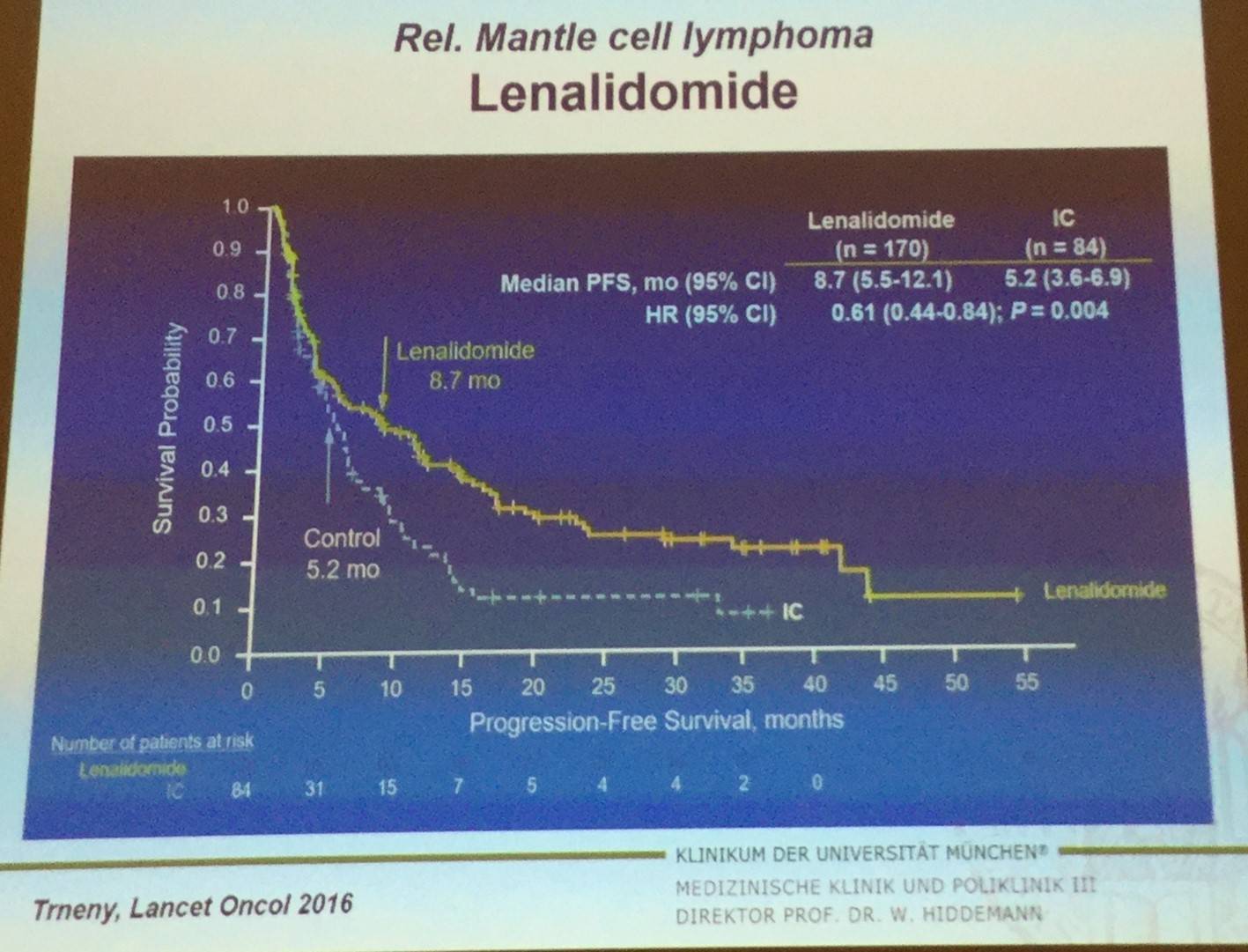
- Temsirolimus has shown superiority to chemotherapy, but appears even more effective in combination with chemotherapy (such as the BeRT regime)
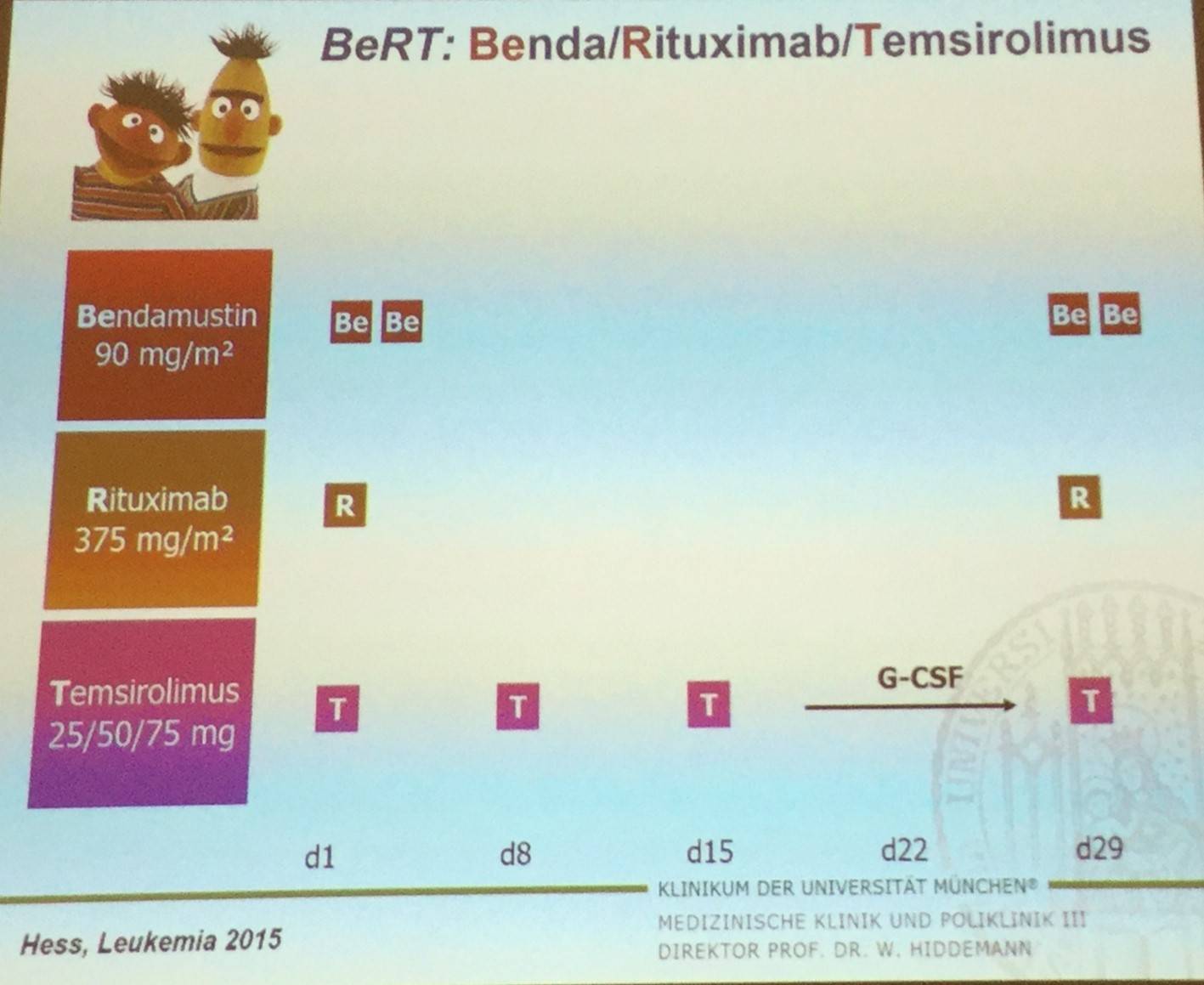
- In first-line, bortezomib (proteasome inhibitor) plus CHOP-like therapy has been reported to be superior to conventional R-CHOP
Prof. Dreyling concluded the talk by stating that current trials are exploring multimodal approaches involving the aforementioned, as well as other, molecular targeted approaches: we are entering “the era of combinations”.
Based on a patient’s individual molecular risk profile, clinical presentation, and comorbidities, in the future we will be able to draw from an armamentarium of numerous therapeutic approaches to individualize therapy.
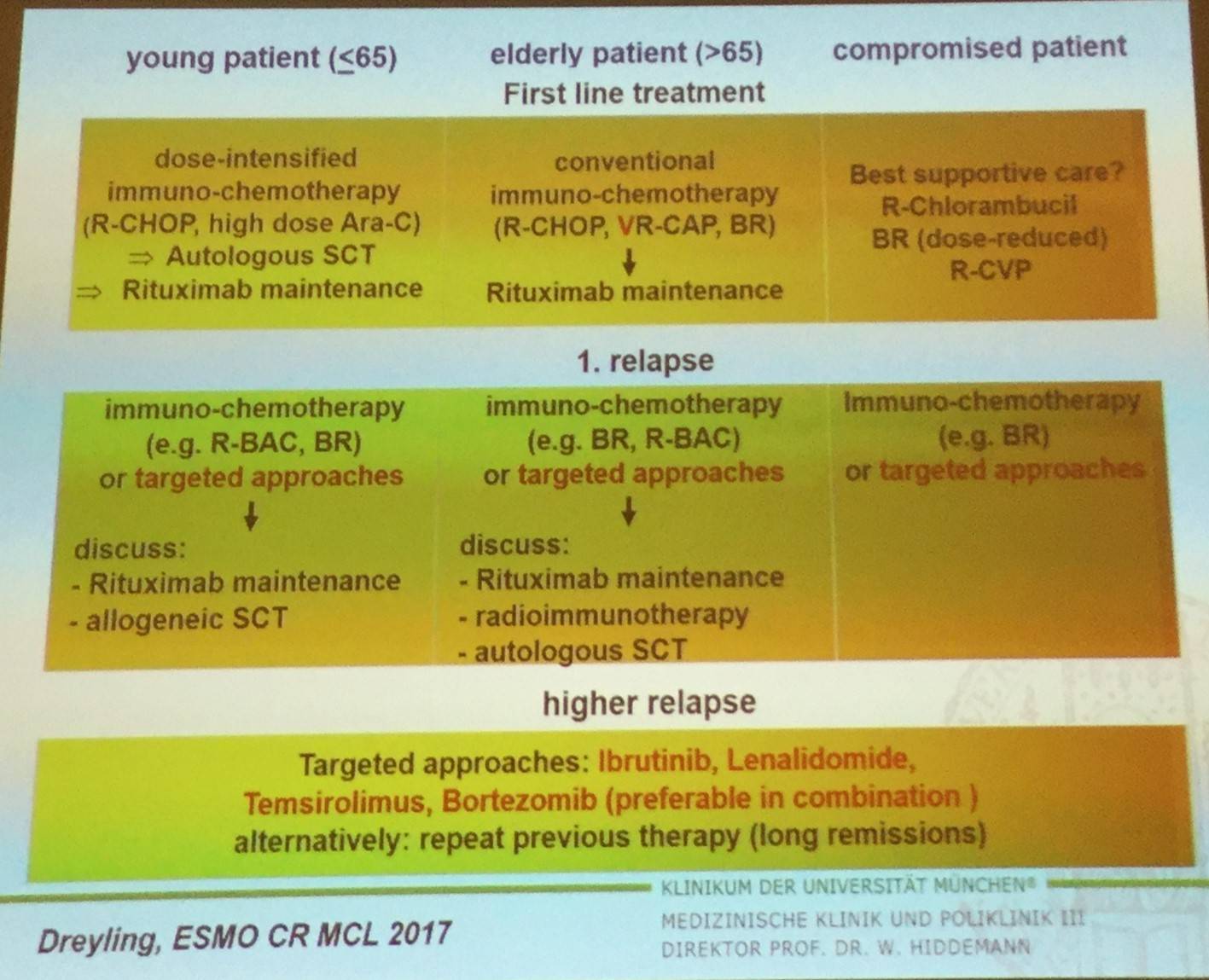
- Dreyling M. Current standards and future studies. 2017 Mar 10. EHA-SWG Rare Lymphomas. Barcelona, Spain.

Understanding your specialty helps us to deliver the most relevant and engaging content.
Please spare a moment to share yours.
Please select or type your specialty
 Thank you
Thank youRelated articles
Newsletter
Subscribe to get the best content related to lymphoma & CLL delivered to your inbox








